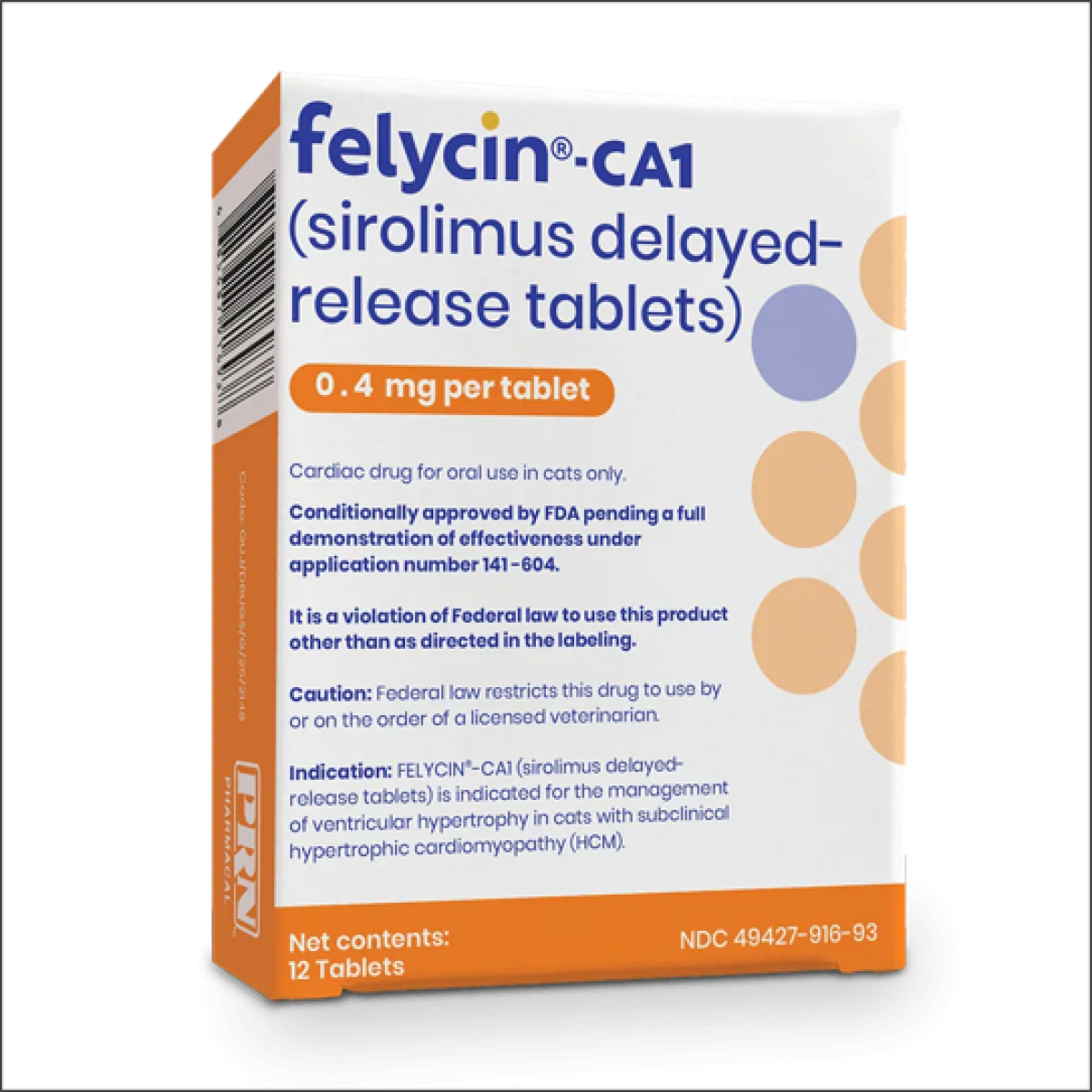ThyroKare — Another FDA-Approved Option to Treat Hypothyroidism in Dogs
by Jenny Alonge
Hypothyroidism is the most common canine endocrine disorder, affecting more than 5 percent of dogs. Hypothyroidism cannot be cured, but daily replacement therapy can help dogs live a normal life. The United States Food and Drug Administration (FDA) approved Thyro-Tabs Canine, the first levothyroxine product, in October 2019, which left veterinarians with fewer options for hypothyroidism treatment in dogs, since unapproved products could no longer be marketed. On January 15, 2021, the FDA approved ThyroKare, providing veterinarians with a second levothyroxine product approved to treat diminished thyroid function in dogs.
Hypothyroidism in dogs
In dogs, hypothyroidism is typically caused by thyroid gland shrinkage or inflammation, resulting in diminished thyroid function and deficient thyroid hormone production. The thyroid hormones triiodothyronine (T3) and thyroxine (T4) regulate the body’s metabolic rate by controlling heart, muscle, and digestive function, and also play a role in brain development and bone maintenance. In dogs affected by hypothyroidism, the thyroid gland slowly deteriorates, resulting in subtle initial signs that gradually progress. Since thyroid hormones affect many body systems, hypothyroidism causes numerous, varied signs including:
- Lethargy
- Sensitivity to cold
- Weight gain
- Hair loss, typically over the dog’s trunk, starting at the tail
- Dull, dry hair coat, which can lead to breakage of the outer hair and leave a short, soft undercoat
- Skin thickening and darkening, especially in high friction areas, such as the groin and armpit, and thickening around the face and head that causes extra skin folds to develop
- Chronic ear and skin infections
Treating hypothyroidism in dogs
Levothyroxine sodium is a synthetic version of thyroxine (T4) and can mimic the body’s production of endogenous T4. ThyroKare is the second FDA approved levothyroxine product to manage hypothyroidism in dogs. The tablets are available in nine strengths from 0.1 mg to 1 mg. Dosage is calculated based on the dog’s body weight, and tablets should be administered twice daily. Food reduces the bioavailability of the medication by 55 percent, meaning the effects will be drastically different in dogs receiving the medication with or without food. To avoid variations in serum thyroxine concentrations, ThyroKare should be given consistently either with or without food. A veterinarian will need to monitor the thyroid levels, to ensure the dose is appropriate. Initially, these levels should be checked every four to eight weeks, and then periodically at the veterinarian’s discretion once the levels have stabilized. Blood collection should occur four to six hours after ThyroKare is administered. Once ThryoKare is started, the dog’s activity level will typically improve in a few weeks, but hair regrowth and other skin and ear problems may take several months to resolve.
Effectiveness of ThyroKare in dogs
A field study was performed from September 2016 to January 2019 involving 120 client-owned dogs who had been diagnosed with hypothyroidism but had never received levothyroxine sodium. To qualify for the study, the dogs’ serum total thyroxine levels had to be less than 1.0 ug/dL, and free thyroxine levels less than 0.7 ng/dL. The dogs also had to exhibit at least two signs commonly associated with hypothyroidism.
Owners administered ThyroKare at a dose of 0.022 mg/kg twice daily consistently with or without food. Six evaluations were performed on the dogs over 168 days. The dogs’ clinical signs were assessed, and bloodwork (i.e., total thyroxine levels, a hematology, and a blood chemistry profile) was pulled at four to six hours post medication administration. The owners kept a daily dosing diary to comment on any problems or abnormalities.
The primary effectiveness endpoint was normalization of each dog’s serum total thyroxine levels by day 84. The secondary effectiveness endpoint was the resolution of clinical signs associated with hypothyroidism by day 84. A large majority (i.e., 81.3 percent) of study dogs experienced a normalization in their serum total thyroxine levels by day 84. Their levels remained normal on day 168 when they were reassessed. Clinical signs associated with hypothyroidism also improved during the study.
Safety of ThyroKare in dogs
Before their approval, the FDA evaluated multiple sources to ensure ThyroKare is safe in dogs.
- A comprehensive review of publicly available literature on levothyroxine’s use in dogs
- Pharmacovigilance data for ThyroKare voluntarily reported when the drug was previously marketed as an unapproved drug
- Reports to an animal poison control center of accidental overdoses of natural or synthetic thyroid hormone products in dogs.
In the field study performed from 2016 to 2019, the most common adverse reactions were polydipsia, polyuria, tachypnea, lethargy, anorexia, vomiting, and muscle tremors.
Importance of FDA approval for levothyroxine drugs
Levothyroxine sodium is prone to stability issues, especially when exposed to heat, moisture, oxidative conditions, and chemical reactions. If not manufactured appropriately, the drug may have a drastically reduced shelf life, with a significant decrease in potency. The FDA’s thorough approval process ensures that an approved drug works correctly and that the health benefits outweigh their known risks.
ThyroKare provides another option for veterinarians treating dogs affected by hypothyroidism. Since the drug has received the FDA’s stamp of approval, veterinarians can be assured that the product they prescribe is safe and effective for their patients.













List
Add
Please enter a comment